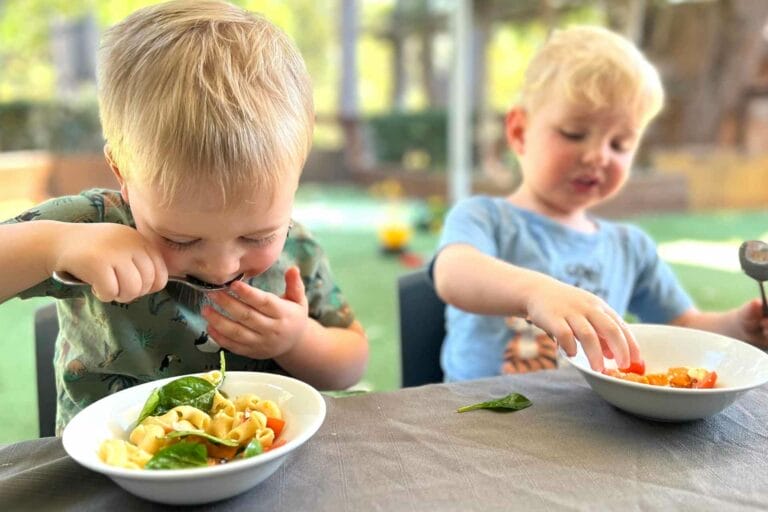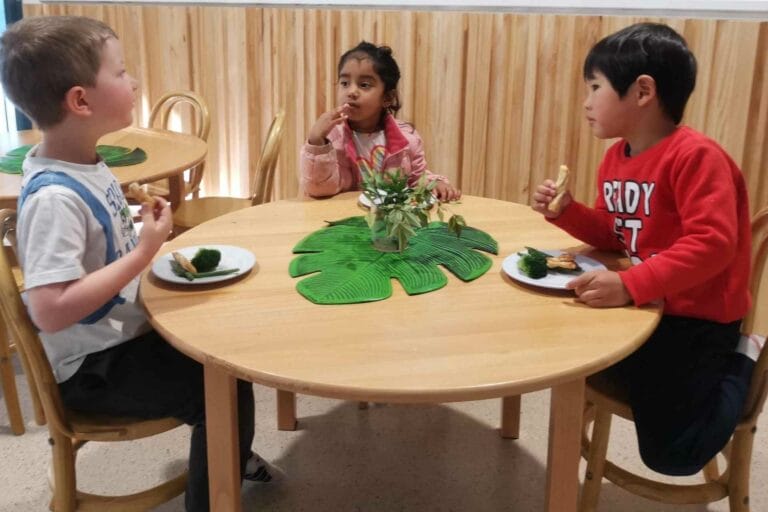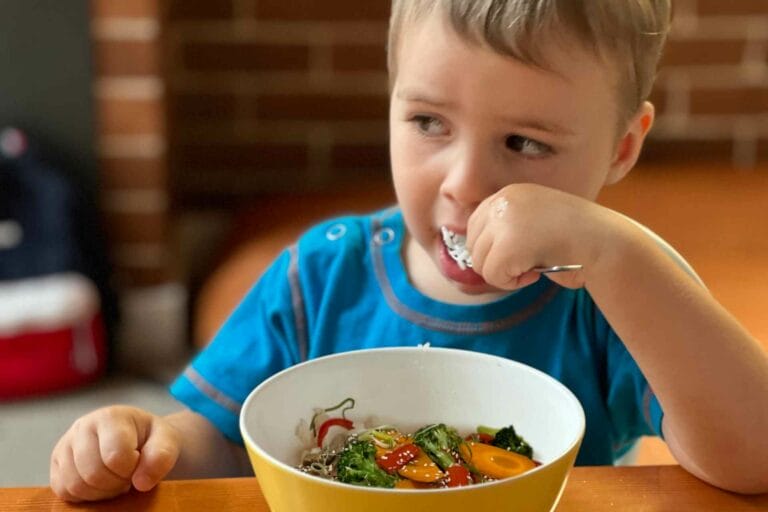Nurturing Emotional Regulation in Children

A Guide for Parents
As a psychologist specialising in child development, I regularly meet with parents who express concerns about their children’s emotional outbursts and struggles with self-regulation. Especially when it comes time to send them off to childcare.
And I get it. It’s understandable for parents to feel nervous about leaving their little ones in the care of others. Particularly when they worry about how their children will manage their emotions in a new environment. Will they listen to their educator, play nicely, share, hit, kick or bite other children? What happens if they have a meltdown at childcare and I’m not there to deal with it?
All valid worries. Also, all developmentally appropriate challenges for young children and nothing the childcare educator hasn’t seen before!
After all, young children are at a crucial stage of development. Where they are learning to navigate their emotions, understand their feelings, and communicate effectively. During this period, they are also beginning to assert their independence and explore the world around them.
Which is why, as they encounter new experiences, challenges, and social interactions in childcare settings, it’s essential for parents and educators to provide them with the necessary tools and support to regulate their emotions effectively.

Strategies to support your child’s emotional regulation
Here are some strategies to help parents support your children’s emotional regulation skills, particularly in the context of an early education and care (ECEC) setting:
Establish routines and consistency
Young children thrive on predictability and routine. Establishing consistent daily routines can help provide a sense of stability and security for children, lowering stress and making it easier for them to manage their emotions. Work with educators to ensure that routines are maintained both at home and in the ECEC setting.
Promote self-awareness
Encourage children to develop self-awareness by helping them identify and label their emotions. Use simple language to describe different feelings and encourage them to express how they’re feeling in various situations. By increasing their awareness of their own emotions, children can begin to understand the triggers and patterns behind their feelings, which is a crucial step in learning to regulate them effectively.
Validate their feelings
Young children won’t always have the words to express how they’re feeling, but it’s essential to validate and acknowledge their emotions.
Let them know that it’s okay to feel angry, sad, or frustrated and reassure them that you’re there to support them. Acknowledge their feelings without judgment and offer comfort and empathy.
Teach age-appropriate coping strategies
Great news – your child is not too young to learn healthy ways to cope with challenging emotions. Children as young as 2 can learn to do some fun breathing exercises, count to ten, or take a break with a safe adult in a quiet area. Encourage them to express their feelings through words rather than actions, by giving them the language they need to talk about feelings and ask for help when they need it. Just remember, while they are capable of learning these strategies, the likelihood of them consistently using
them in the moment is low!
Teach problem-solving skills
Help your child develop problem-solving skills by encouraging them to brainstorm solutions to common challenges they may encounter in childcare, such as sharing toys or taking turns. Guide them through the process of identifying the problem, considering possible solutions, and evaluating the outcomes. Just be sure to wait until after that meltdown is over to try this one!
Provide positive reinforcement
Recognise and praise your child’s efforts to regulate their emotions, even if they don’t get it quite right every time. Offer specific praise when you observe them using healthy coping strategies or demonstrating self-control in challenging situations. This kind of encouragement is fantastic for your child’s self-esteem, and focusing on their effort, or what they’ve done well also helps you offer more empathy and compassion to your little one!
Create a safe and supportive environment
Ensure that both home and ECEC environments are safe, nurturing, and supportive. Provide children with opportunities for free play, exploration, and social interaction while also offering a secure base where they can seek comfort and reassurance when needed. At childcare, this looks like helping your child develop safe, connected relationships with key workers – so be mindful of your own body language and facial expressions during handover – if you feel safe (and show it) handing your child over, they’ll feel safe too.
Model healthy emotional regulation
Children learn by example, so it’s essential for parents and caregivers to model healthy emotional regulation skills. Demonstrate how to manage stress, frustration, and other emotions in constructive ways, and avoid reacting impulsively or aggressively in front of children.
Stay connected with educators
Maintain open communication with educators to ensure that they are aware of any specific needs or concerns regarding your child’s emotional well-being. Collaborate with them to reinforce consistent
strategies for supporting emotional regulation across different settings.
Be patient
Remember that emotional regulation is a gradual, developmental process, and your child is still learning! Be patient and understanding and celebrate small victories as your child learns to navigate their emotions more effectively.
Remember, building emotional regulation in young children is a gradual process that requires patience, consistency, and support from parents and educators. By implementing these strategies and providing a supportive environment both at home and in ECEC settings, parents can help toddlers develop essential emotional regulation skills that will serve them well throughout their lives. Remember that every child is
unique, and it’s essential to tailor your approach to meet your child’s individual needs and temperament.
But with patience, consistency, and unconditional love, all parents can empower their children to manage their emotions confidently and thrive in any environment.
If you’d like to explore our service in action visit Sydney Early Education Centres, you can book a tour or send us a message.

Written By
Sarah Conway, Mindful Little Minds





